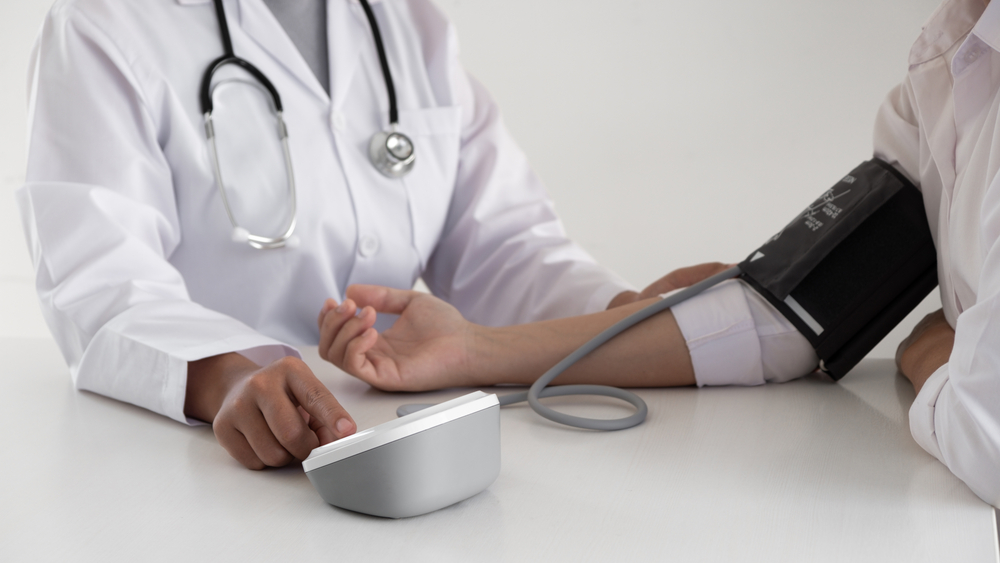Blood pressure

Blood pressure is the pressure that circulating blood exerts on the inside walls of the blood vessels. It is measured using a cuff around the arm during your clinic appointment. Several different factors can affect blood pressure such as how well your heart is pumping your blood and how elastic the walls of your blood vessels are to allow the blood to flow through them.
What is a normal blood pressure?
A blood pressure reading is given as two figures. The first is called the systolic reading, which is the pressure as the heart pumps blood into the artery. The second is called the diastolic reading, which is the pressure as the heart relaxes. The first number is always higher than the second.
People with diabetes should ideally aim to have a blood pressure reading of 140/80 mmHg or less, although your diabetes care team may set a slightly different individual target for you. For example, a lower level may be recommended if you have evidence of kidney problems.
What is high blood pressure and what causes it?
A reading of over 140/80 mmHg is usually considered too high for most people. A one-off high reading is not a particular cause for concern as it can be due to stress, or strenuous activity. If your blood pressure remains high over the long term, however, it may need to be treated.
Blood pressure can be increased if the walls of the blood vessels have become less elastic due to furring or hardening of the arteries. This can be due to high blood glucose, high cholesterol, and/or smoking over a number of years.
Long-term high blood pressure means there is increased pressure on your heart and other organs like the kidneys. It can also weaken the small blood vessel walls, which can cause them to enlarge and sometimes bleed.
How can I reduce my blood pressure?
There are a number of things that can help to reduce blood pressure. These include:
- stopping smoking if you smoke
- increasing your physical activity
- aiming to achieve a healthy weight
- drinking less alcohol
- reducing the amount of salt in your diet
Sometimes blood pressure can go up if someone is stressed, so thinking about some ways to help manage stress can be helpful.
You can find more information on the NHS website.



Leave a Reply
You must be logged in to post a comment.